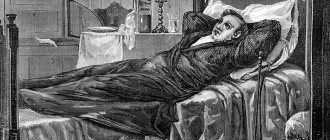Comparison of heroes
Goncharov's work contains a deep philosophical meaning. The novel shows the discord between the patriarchal and bourgeois way of life. The main characters appear before us - Ilya Oblomov and Andrei Stolts, who belonged to the same class and belonged to the same society. If you look at them, you might think that their views and thoughts are similar. However, they are completely opposed to each other.
Stolz is a reasonable person whose common sense dominates over feeling. The writer is trying to find out why these people are so diverse. And he sees these reasons in origin, upbringing and education, since all this is laid in the foundation of character. Stolz was raised in a family with little income. As a child, his father often took him with him to field work and the market, gradually teaching him to work. At the same time, he studied various sciences with Andrei, and especially taught the German language. Thus, his father taught him to treat any business with respect. His mother, in turn, instilled in him a love of literature and aesthetics. So, Stolz appeared before us as an educated and strong young man.
In the Oblomov family, life proceeded completely differently. In their house, the household constantly thought about food. And after a hearty lunch, everyone fell asleep. This happened every day. Having sent Ilya to the gymnasium, the parents were not at all worried about their son’s success, but on the contrary, they tried to free him from certain activities. They did not let him go for a walk, fearing that Ilyusha would get hurt or fall. Thus, Oblomov grew up lazy and indifferent to everything.
Let's take a deeper look into the character of each of them and find out what the tragedy of their lives is. If you look at Stolz, at first glance he seems to us an ideal young man. He works with pleasure, without neglecting any work. Since Stolz left home, thanks to his work, he has become a self-sufficient gentleman. Happiness appears to him in the form of material well-being. And he has it, but life is dreary and monotonous.
Unlike Oblomov, Stolz is devoid of any worries and worries. All his affairs are scheduled strictly according to plan. For Oblomov, working turned out to be too hard. Since he was a master, why did he need some kind of work? He was too lazy to even get up from the couch and get dressed. In order to be happy, Oblomov needs to eat deliciously and be deeply soaked in bed. He had his own tragedy - a moral one. From a kind and pure person, he gradually turns into a moral cripple. But even if they differed in their inner world, they were still friends for a long time. They were brought together by the kindness and honesty of each hero.
S. My attitude towards A. Stolz Based on the novel by I. A. Goncharov “Oblomov”
The sixties of the nineteenth century... A new time for Russia... It requires different heroes of literature, who must not only passively resist the surrounding reality, like “superfluous people,” but also actively intervene in life, want to reorganize it and be capable of active good.
One of them is Andrei Stolts, the hero of I. A. Goncharov’s novel “Oblomov”. Compared to E. Onegin and G. Pechorin, I like this active person. I like him because he knows what he wants to achieve in life and achieves a lot. Is this bad? True, the writer approached the depiction of the “new man” very carefully. He barely showed it in action. And we can only guess about the activities of Oblomov’s friend. But our assumptions are still gratifying: after all, E. Onegin, G. Pechorin, and I. Oblomov did nothing in life, but were only bored...
I wonder why this literary character is so different from his friend? Because he belongs to the noble class purely formally, and therefore is not disfigured by such a social disease as Oblomovism.
I am impressed that A. Stolz is a man of action, he is not “infected” with the nihilistic views that were fashionable at that time, the implementation of his social ideas is not connected with any social movement. Even Ilya Oblomov, in a conversation with a friend, criticizes the empty and selfish secular society (to scold society is a tribute to the fashion that came from “superfluous people”), but Stolz does not react to his words. Perhaps he is convinced that all political disputes are a waste of time, he should get busy! And that's why I like him! The hero is undoubtedly right: it is easy to criticize, it is much more difficult to do something sensible, but Stolz’s own affairs are in order, and he arranges others’ (Oblomov’s) in good faith, as if they were his own.
I am attracted by the image of Andrei Stolts and the fact that he is drawn by I. A. Goncharov not only as a business man, but also as a cultured man who loves music, admires Olga’s singing, understands art and is very well read in literature. In life, he does not want to give up anything: neither beauty, nor admiration of nature, nor friendship, nor love. Stolz is a man who lives life to the fullest.
And the last thing for which I respect the hero I. A. Goncharov is his loyalty to youthful friendship: he saves the main character of the novel from ruin, and after the death of Ilya Ilyich, he raises his son.
So, Andrei Stolts is a representative of the “new people”. And thanks to I. A. Goncharov, an observant and sensitive artist, who was able to catch something new in the public mood of the pre-reform era.
Source
Essay 2
We can say that in the work the active Stolz is shown by the author as opposed to the apathetic and phlegmatic Ilya Oblomov. But, despite the fact that the character is not the most basic, he cannot be called secondary. In fact, the character of the hero is very multifaceted.
What are its characteristic features? Firstly, unlike other images, Andrei Ivanovich does not belong to a noble family. However, like his father. Of course, the hero has a noble title - but he received it not thanks to patronage, but through his own labor and diligence. This commands respect. Starting from the very bottom, Stolz managed to rise to the position of court councilor.
Andrey shows an aptitude for science and is knowledgeable in the field of agronomy. Unlike Ilya Ilyich, who is accustomed to contentment and prosperity, Stolz is from a simple family. We can say that during his childhood the family even lived poorly. The hero is not picky about food, he is used to simple dishes.
The character has the appropriate education and upbringing. After all, unlike noble children, he was not spoiled. On the contrary, his father, who has German roots, instilled in the boy a love of discipline from childhood. Moreover, as a child Andrei even worked for him as an artisan. Moreover, there were no concessions. The son worked and received a salary on the same basis as other workers.
Stolz became responsible and independent early on. He knows French perfectly and has a musical education. Can play the piano. Also knows German.
As for the hero’s appearance, the reader meets him at the age of 30. The author talks about green, expressive eyes, dark skin and an athletic build.
Stolz’s character captivates with his ability to learn, hard work and desire (unlike Ilya Ilyich) to explore the world. Andrey travels often. But not just for fun. He exchanges knowledge with various people, adopts knowledge, and improves languages. He periodically appears in secular society, but does not experience joy from such gatherings.
However, the hero also has a significant disadvantage. He is practical, does not know how to dream. In some aspects he can even be called down-to-earth. However, he is not alien to children's activity and liveliness.
While Ilya Ilya is constantly on his favorite couch, Andrey is always busy with something. It seems he doesn't have a minute of free time. How does he manage to keep up with everything?
Firstly, he, like all Germans, values his time and knows how to distribute it rationally. Stolz is reserved with others, but is capable of support and empathy.
The hero is not used to complaining about life and loves order. He is quite persistent and ambitious. Appreciates his virtues. He can be called an open person. Making a new friend is not a problem for Stolz. At one time he helped Oblomov with his studies.
However, even now he is busy with his friend’s affairs. The positive aspects include the fact that he did not succumb to “typical noble laziness”, retained a thirst for knowledge, established himself as a good husband, father and friend, a man with an active life position who is able to master any type of activity in the shortest possible time make useful contacts, solve any pressing problem.




